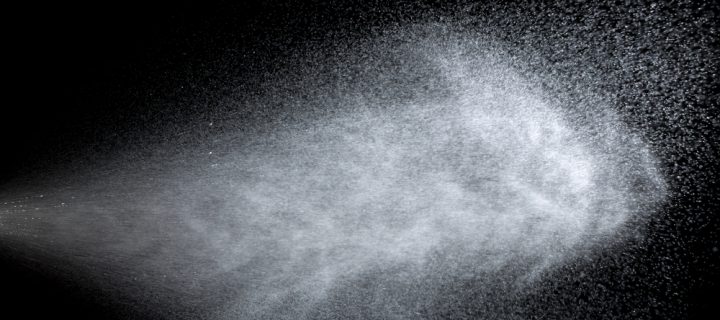This vaccine targets your lungs directly.
There are several vaccines now available across the world that reduce your chances of developing a severe case of COVID-19. Most of these are received via injections. If you squirm at the prospect of receiving a needle, however, some good news out there. Canada is developing a new vaccine that’s taking a different route. This one is inhaled, opening doors to new possibilities. Here’s what we know about it.
Trials are underway
Canada’s inhaled vaccine is being developed by researchers at McMaster University in Hamilton, Ontario. Things are looking promising. Studies done on animals at the beginning of 2022 showed positive results. Two doses of the vaccine inhaled through the lungs provided protection against the original stain of the novel coronavirus as well as its variants.
Researchers have now moved onto studying this vaccine in adult humans. The beauty of an inhaled vaccine is that it targets your lungs and upper airways directly in the precise area where a COVID-19 infection first takes hold.
Zhou Xing, a researcher from the university’s department of immunology and medicine, says the inhaled protection does what injected inoculations can’t.
“What we’ve discovered from many years’ research is that the vaccine delivered into the lung induces all-around protective respiratory mucosal immunity, a property that the injected vaccine is lacking,” Xing said.
If all goes well, this could alter the course of vaccine development.
The added benefits of an inhaled vaccine
The inhaled COVID-19 vaccine comes with additional benefits. Not only does it go straight to your lungs, but it doesn’t require extreme cold storage like Pfizer’s mRNA COVID-19 vaccine. Advocates say this makes it potentially more accessible. In addition, minimal storage is required as it’s administered via disposable devices.
Related: What is the BA.2 variant now surging in the UK?
Finally, because this vaccine induces a localized immune response, it’s thought that a lower dose can be effective. This means many more people could have access to the vaccine at a lower cost.
As much of the developing world still remains unvaccinated against the novel coronavirus, an inhaled vaccine could be a game changer with global ramifications, some believe.
Canada and China: a controversial partnership
All benefits aside, in Canada, the development of an inhaled COVID-19 vaccine hasn’t been an entirely smooth road. For a bit of context around the project, it can be interesting to learn that it began as a partnership between McMaster University and the Chinese company CanSinoBIO. The collaboration has since stalled. The university and the company are now said to be pursuing their own vaccines, independently.
CanSino is based in Tianjin, China and was developed in 2009 by Chinese scientists who had worked and studied in Canada. CanSino has used Canadian technology to develop an Ebola vaccine as well as a single-dose COVID-19 vaccine. The contract signed between CanSino and McMaster was to last for a maximum of 20 years, up to 2031. The collaboration seems to have fallen by the wayside, however.
Nonetheless, regardless of who is first to the finish line in finalizing the development of an inhaled COVID vaccine, hopefully it will be a benefit to many. Saving lives is what really matters.
photo credits: Ruslan Kudrin/Shutterstock.com












